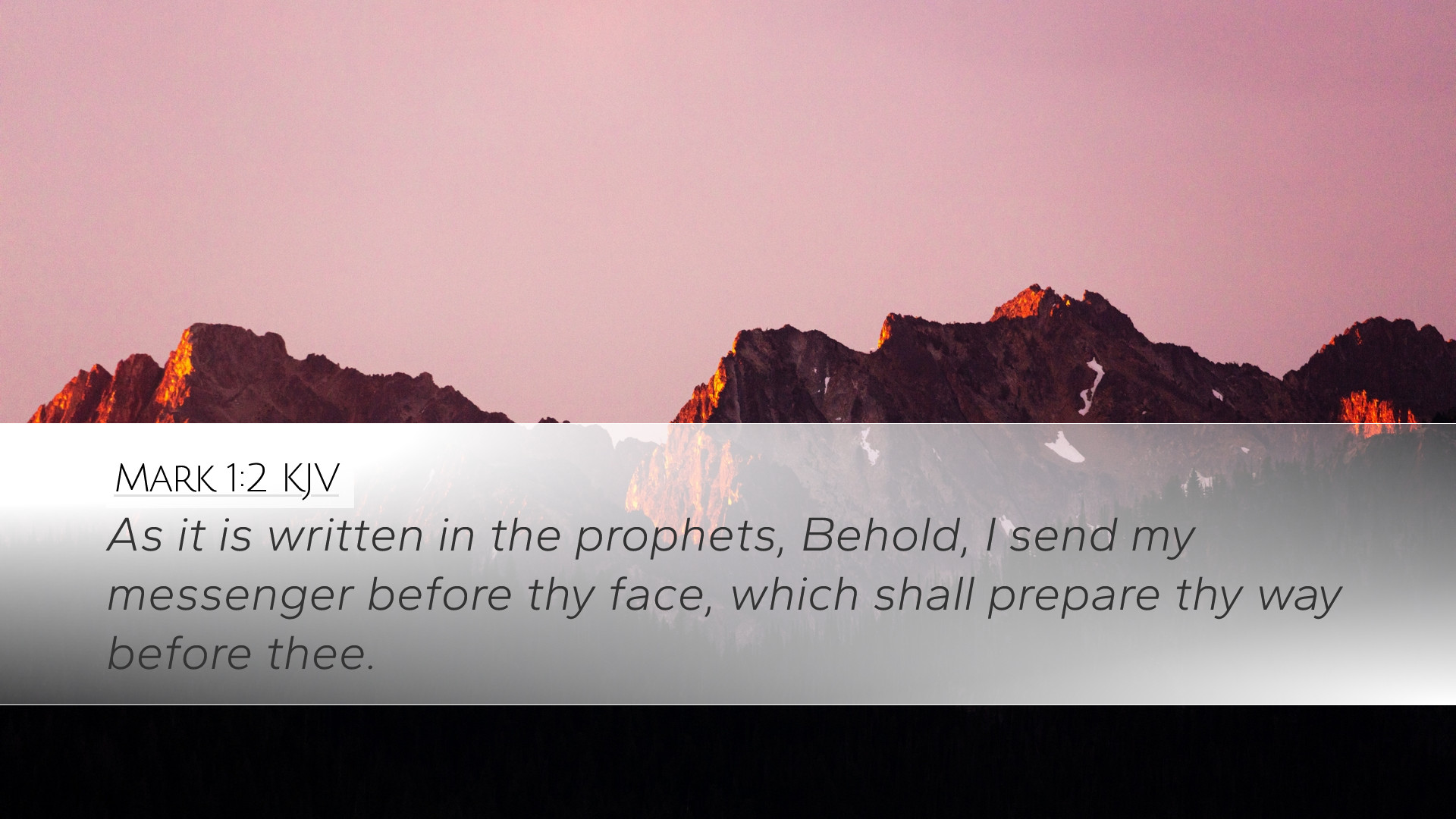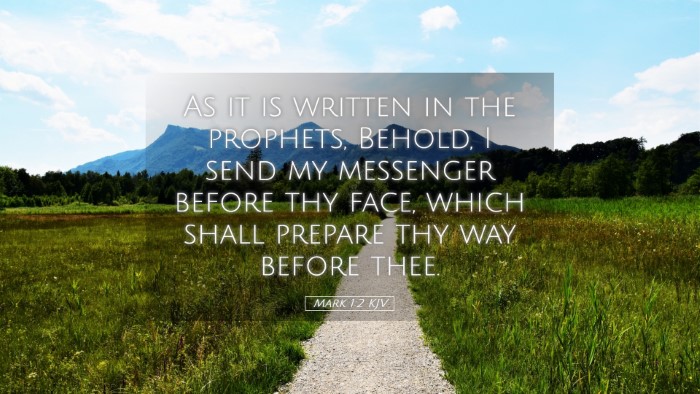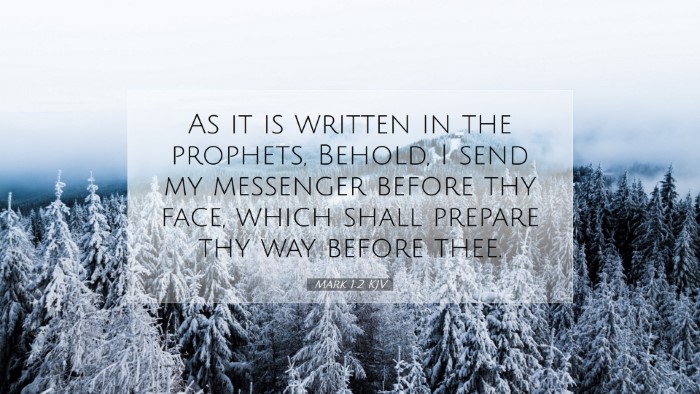Commentary on Mark 1:2
Mark 1:2 states:
"As it is written in the prophets, Behold, I send my messenger before thy face, which shall prepare thy way before thee."
Introduction
Mark's Gospel presents a vivid depiction of the ministry of Jesus Christ, commencing with the proclamation of John the Baptist. This verse serves as a pivotal opening, linking prophetic tradition with New Testament fulfillment. The text draws attention to the promise of a forerunner, a role fulfilled by John the Baptist, which is crucial for understanding the overarching narrative of salvation history.
Contextual Background
To grasp the full significance of Mark 1:2, it is vital to consider its Jewish context. The people of Israel had long anticipated the coming of the Messiah, and the prophets provided forewarnings of this crucial event. By citing the prophets, Mark underscores the continuity of God's redemptive plan.
Prophetic Foundation
Mark references two key prophetic texts which are traditionally associated with the forerunner of the Messiah. The primary quotation is most closely linked to:
- Isaiah 40:3: “The voice of him that crieth in the wilderness, Prepare ye the way of the Lord, make his paths straight.”
- Malachi 3:1: “Behold, I will send my messenger, and he shall prepare the way before me.”
This dual citation reflects a consensus among the Jewish teachers that the arrival of the Messiah would be preceded by a messenger who would prepare the hearts of the people for his coming.
Interpretations from Commentaries
Matthew Henry's Concise Commentary
Matthew Henry emphasizes the divine selection of John as the messenger. He articulates that this verse reveals God's sovereignty in the preparation of hearts before the glorious coming of Christ. Henry notes that John's ministry serves as an invitation to repentance and readiness, reflecting God’s grace in sending a preparatory figure.
Albert Barnes' Notes on the Bible
Barnes elaborates on the phrase “I send my messenger” as indicative of God's active role in salvation history. He suggests that nothing is more significant than the inbreaking of the divine into human affairs as symbolized by the coming of John the Baptist. He highlights that John’s purpose is not merely preparatory but integral to the fulfillment of God’s promises. This acknowledgment reinforces the recognition of John not as an isolated figure but one embedded within God's overarching mission.
Adam Clarke's Commentary
Clarke examines the sociocultural implications of the message. He points to the wilderness setting of John's ministry and interprets it as symbolic of spiritual desolation and a call to repentance. Clarke indicates that the quote from the prophets not only affirms John’s mission but also calls the people to acknowledge their need for spiritual renewal in anticipation of the coming Messiah.
Theological Reflections
Role of the Forerunner
The role of John the Baptist as the forerunner points to the essential truth of preparation in spiritual life. The act of preparing for Christ necessitates a humble response to God’s call. For pastors and theologians, this highlights the responsibility to lead communities in spiritual disciplines that cultivate readiness for the work of Christ in their midst.
Continuity of God's Plan
This verse affirms the consistency of God's dealings with humanity throughout history. The prophetic declaration serves as a bridge from the Old Testament to the New Testament, manifesting an enduring hope. Students of scripture are encouraged to explore how the themes of prophecy and fulfillment weave together the tapestry of the biblical narrative.
Practical Applications
Mark 1:2 offers several practical applications for contemporary believers:
- Embrace the Call to Prepare: Just as John prepared the way for Christ, believers today are called to prepare the way in their hearts and the hearts of others.
- Recognize the Importance of Prophecy: Understanding the prophetic foundations of faith enriches the Christian experience and provides assurance in God’s unchanging nature.
- Promote Repentance and Readiness: Emphasizing repentance as a precursor to receiving Christ is fundamental for spiritual growth and community life.
Conclusion
Mark 1:2 encapsulates the essential message of preparation and prophecy. It brings to light the role of John the Baptist as the significant forerunner, fulfilling ancient promises and paving the way for the Messiah's ministry. For scholars, pastors, and students, this verse is not merely historical; it challenges them to consider their own response to God's call and encourages a lifestyle attentive to the coming of Christ.


